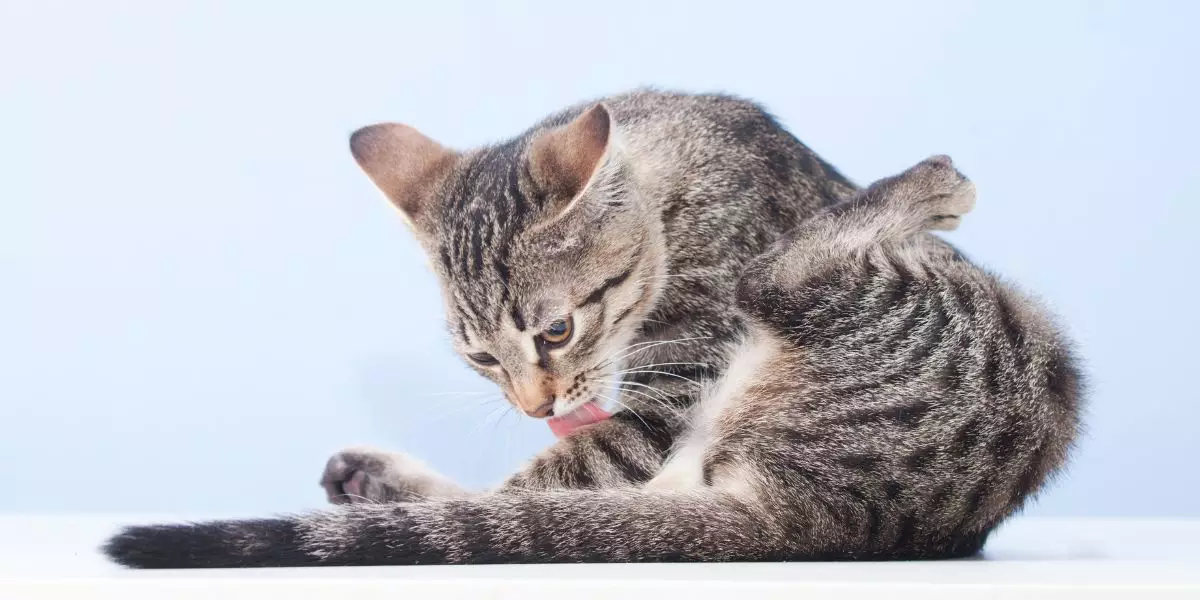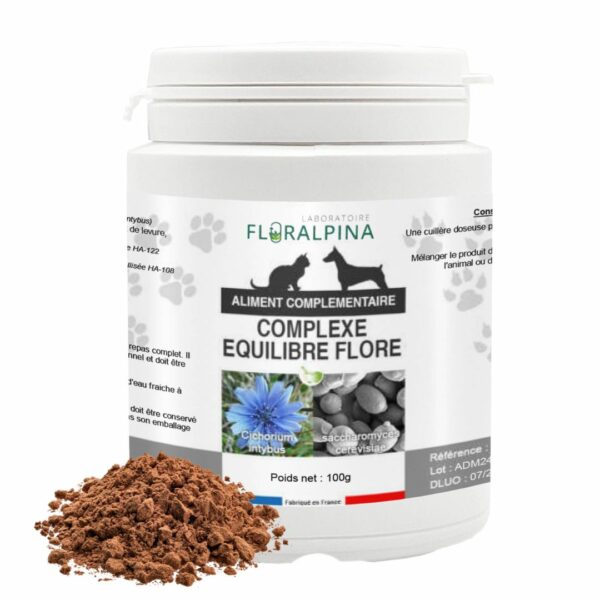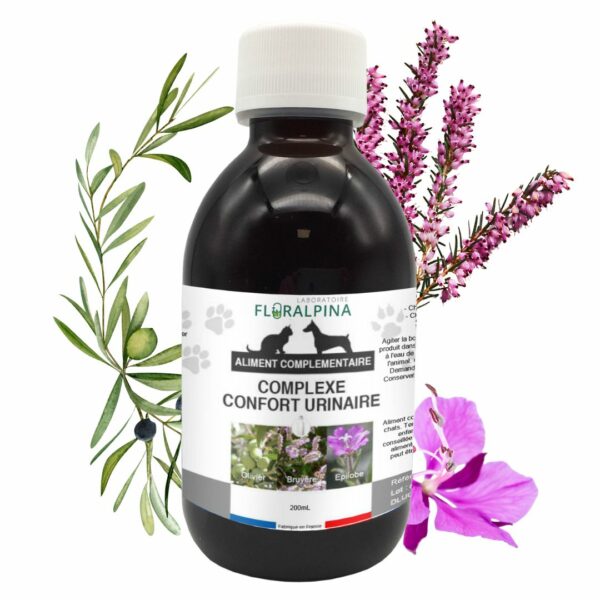Urinary infections in cats are a common health problem, often associated with cystitis, bladder inflammation. Although conventional medical treatments are generally effective, many cat owners are looking for treatment options for treating cat cystitis naturally. To learn more, let us explore together the most common causes of urinary infection in cats as well as the different natural approaches to treat feline cystitis.
Table of Contents
ToggleCauses of urinary infection in cats: cystitis
Urinary infection in cats is a common health problem that can cause pain and complications if not treated quickly. It is usually caused by bacteria that enter the urethra and go up to the bladder. Cats may also suffer from bladder stones or other health problems that promote the development of urinary infections. Factors that increase the risk of urinary infection in cats include:
• Dehydration
• Obesity
• A weak immune system
• Inappropriate diet
Symptoms of urinary infection in cats: cystitis
To identify urinary infection in cats, it is important to know the most common symptoms. These include:
• increased frequency of urination,
• difficulties in urinating,
• blood in the urine,
• malodorant urine,
• excessive leching of the genital area.
Cats can also show signs of pain, such as complaining miaulements, loss of appetite and unusual general behavior
If you experience these symptoms in your cat, it is essential to consult a veterinarian for accurate diagnosis and appropriate treatment.
Urinary infection in cats: natural treatment for cystitis
There are several natural treatments for urinary infections in cats that can be used in addition to traditional veterinary care.
Here are some options to consider:
Moisture
Ensuring good hydration is essential to prevent and treat urinary infections in cats. Indeed, when a cat is well hydrated, its urine is more diluted. Diluted urine reduces the concentration of irritant and potentially harmful substances in the bladder, reducing the risk of infection and inflammation and preventing the formation of urinary crystals, a source of bladder irritation. In addition, hydration will lead your cat to urinate regularly, which will allow her to better eliminate the bacteria present in her kidneys and bladder.
Encourage your cat to drink water by placing several bowls of fresh water in different parts of the house. You can also add water to your cat's wet food to increase its consumption.
Probiotics
Probiotics are beneficial bacteria that can help rebalance your cat's intestinal flora, strengthen its immune system and prevent urinary infections. You can give probiotics to your cat as supplements or by adding foods rich in probiotics, such as natural yogurt to its diet.
At Veto Compagnon, we specially designed a EQUILIBER COMPLEX FLORE to help your cat rebalance its intestinal flora.
Flore Balance Complex
Probiotic plant complex for your dog or cat. ✅Promotes digestion ✅Strengthens natural defences ✅Restores intestinal flora balance Size 100g Dosing spoon included
Medicinal plants
Several medicinal plants can be used to treat urinary infections in cats. Some of these commonly used plants include:
Canneberge : The specific compounds contained in the cannaberge act to prevent bacteria from attaching to the bladder walls. This makes it a useful plant in preventing urinary infections.
Echinacea : Lechinacea is a plant that strengthens the immune system and helps fight infections.
Canadian Hydrates : Canadian hydrolysis is used daily for its antibacterial and anti-inflammatory properties.
It is because we believe in the benefits of plants, that we have conceived our URINARY CONFORT LIQUID to naturally treat urinary disorders in cats. Our liquid consists of:
-
- Orthosiphon
-
- Olivier
-
- Bruyère
-
- Busserole
-
- Epilobe
-
- Cherry tail
-
- Piloselle
-
- Dog
These plants will work in synergy to stimulate urine production and facilitate the disposal of waste and bacteria from the urinary system. They will also help prevent infections and inflammation. Finally, they will help prevent the formation of crystals and urinary stones.
Urinary comfort complex
This plant complex will act to relieve and prevent inflammation and urinary infections of your dog or cat. ALCOHOL-FREE ✅Supports kidneys ✅Eliminates waste ✅Prevents urinary infections Size 200ml Dose pipette included
Homeopathic treatments for urinary infections in cats
Homeopathy is another natural approach to treating urinary infections in cats. Homeopathic remedies such as Nux vomica, Cantharis and Staphysagria can be used to relieve symptoms associated with urinary infections.
Prevention of urinary infections in cats
Prevention is the key to avoiding urinary infections in your cat. Some useful preventive measures include:
Balanced diet
Give your cat a high quality food adapted to its nutritional needs. Diets rich in protein and low in carbohydrates are often recommended for cats, as they promote a healthy urinary system. Furthermore, having a balanced diet will help maintain a healthy urinary pH and thus limit inflammation and irritation of the bladder.
Maintain litter cleanliness
Clean your cat's litter regularly to encourage good hygiene and reduce the risk of infection. Change the sand once a week and remove solid waste daily. This small action will allow your cat to avoid getting in touch with bacteria that could proliferate within a dirty litter. Furthermore, cats are very clean animals and may be reluctant to use dirty litter. By keeping litter clean, you encourage your cat to urinate regularly, which helps reduce the risk of urinary infection.
Finally, cats are sensitive to changes in their environment, and dirty litter can be a source of stress for them. However, we know that stress acts negatively on the cat's immune system and increases its vulnerability to infections, including urinary infections. By keeping litter clean, you reduce stress for your cat and help preserve its health.
Encourage exercise
An active and healthy cat is less likely to develop urinary infections. Encourage your cat to play and exercise regularly to maintain good physical and mental health.
To conclude on urinary cat infections
In conclusion, urinary infections in cats can be painful and potentially dangerous if not treated. Fortunately, there are several natural approaches to treating and preventing urinary infections in cats, including herbal remedies. In addition, good prevention is essential to maintain your cat's health and reduce the risk of urinary infections. Make sure to provide your cat with a balanced diet, keep her litter clean, manage her stress and encourage regular exercise to promote a healthy urinary system and a happy lifestyle.
Do not forget to consult a veterinarian before trying a new treatment for your cat, especially if symptoms persist or worsen. Natural treatments can be helpful in relieving symptoms and supporting healing, but it is important to work with a professional to ensure that your cat receives appropriate care.
FAQ: Everything about cystitis
How can stress contribute to cystitis in cats?
Stress can play a significant role in the development of cystitis in cats. The feline idiopathic cystitis (CIF), also known as interstitial cystitis, is a form of cystitis often associated with stress. Although the exact cause of ICF is not fully determined, it is clear that stress plays a role in triggering or worsening certain symptoms in sensitive cats.
Cats are creatures sensitive to changes in their environment and can be stressed by factors such as moving, new pets, routine changes, conflicts with other cats or the prolonged absence of their owner. When a cat is stressed, its immune system is often weakened, making the animal more vulnerable to infections and inflammation, including cystitis.
To prevent stress-related cystitis in cats, it is important to provide a stable and secure environment for your pet. Make sure your cat has constant access to safe places to hide and rest, as well as resources such as food, water and litter.
Are there any differences between cystitis in male and female cats?
There are some differences between cystitis in male and female cats, mainly in terms of prevalence and potential complications.
Male cats are more likely to develop urinary obstruction due to their anatomy. Their urethra are narrower and longer than that of females, which increases the risk of obstruction by crystals, calculations or thick mucus. Urinary obstruction is a medical emergency that requires immediate veterinary attention.
Bacterial urinary infections are more common in female cats than in males, due to the proximity of the urethra and the anus, which facilitates bacterial contamination.
In terms of symptoms, cystitis is similar in male and female cats.
What is the average duration of cystitis in a cat and how long does it take for symptoms to disappear after starting treatment?
The duration of cystitis in a cat varies depending on the underlying cause and the speed with which the treatment is administered. In general, symptoms of cystitis begin to improve within 24 to 48 hours of the start of appropriate treatment.
The total duration of treatment will depend on several factors, including the cause of cystitis, the severity of infection or inflammation, and your cat's response to treatment. For example, antibiotic treatment for bacterial urinary infection can last 10 to 14 days, while managing feline idiopathic cystitis may require longer treatment and careful follow-up to prevent recurrence.
To promote rapid recovery and minimize complications, it is crucial to consult a veterinarian as soon as you suspect that your cat is suffering from cystitis. The veterinarian can assess the condition of your cat, determine the cause of cystitis and prescribe the appropriate treatment to ensure rapid and complete recovery.







